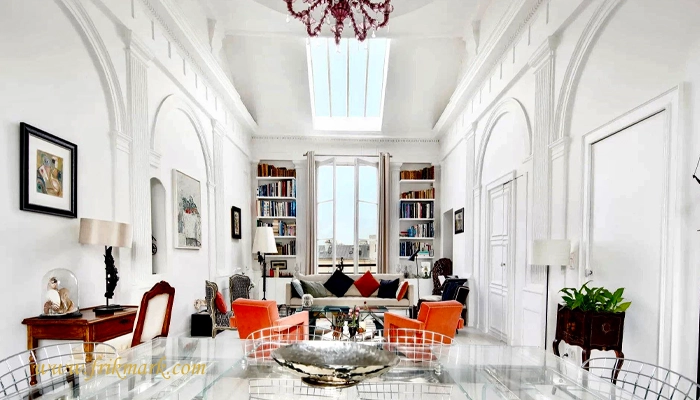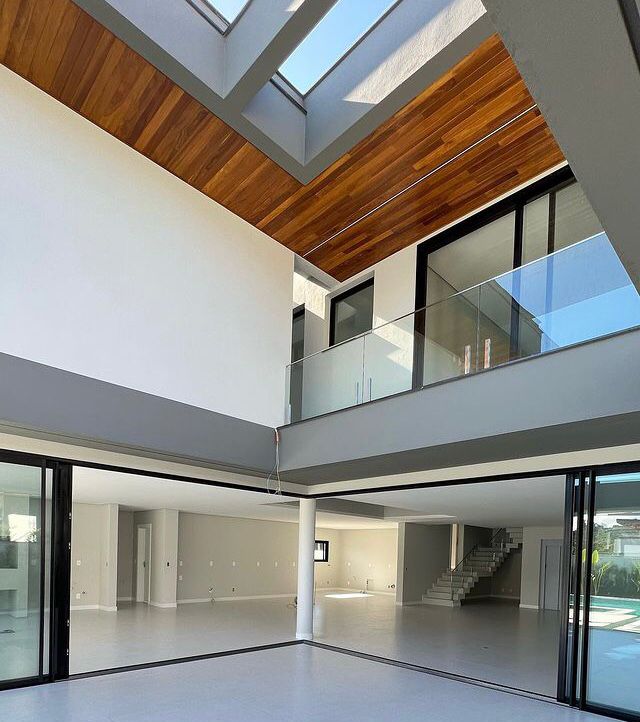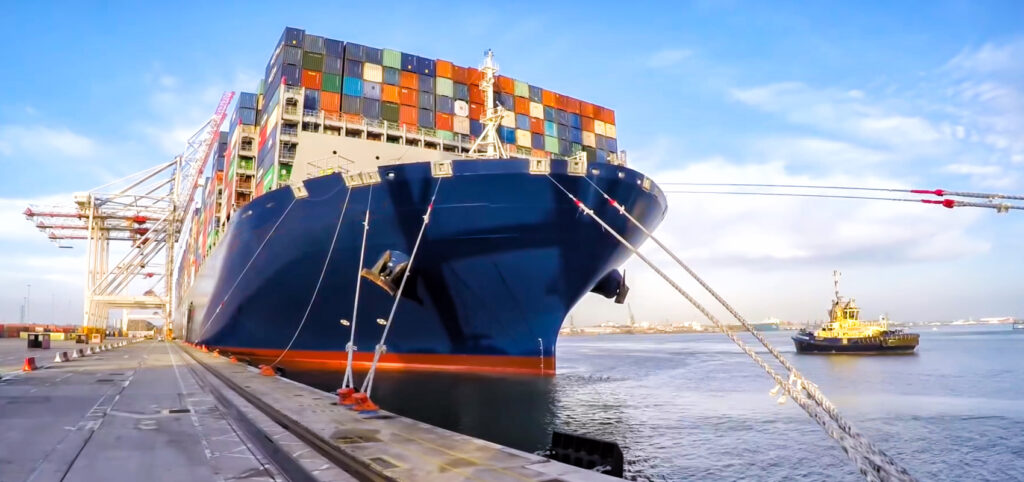The real estate market in Brazil has undergone significant changes in recent decades. Population growth, urbanization, intermittent economic growth, and changes in government policies are among the factors that have directly or indirectly affected property prices in Brazil . Given the vital role of the housing sector in the lives of citizens and its impact on macroeconomic indicators such as employment, investment, and GDP, it is an undeniable necessity to accurately identify the factors affecting property prices in Brazil.
Brazil, the largest economy in Latin America, has a complex and diverse real estate market in which economic, social, political and environmental factors all play a role. Factors such as interest rates, access to credit, government housing policies, demographics and even the geographical location of the property can all influence market price trends.
The aim of this article is to systematically analyze these factors and examine their impact on property prices in different regions of Brazil . In the following, we will try to present a clear picture of the current situation and prospects of the real estate market in this country by taking an analytical look at the different aspects of this issue.
Economic factors affecting property prices in Brazil
Property pricing in Brazil is influenced by a set of economic factors that operate at both the macro and micro levels. Interest rate fluctuations, changes in inflation, lending policies, and the overall state of the country’s economy are among the most important variables that directly or indirectly increase or decrease the value of real estate in different regions of Brazil. A precise understanding of these factors is of particular importance for domestic and foreign investors, as well as for the government and housing policymakers, because incorrect policymaking in this area can cause severe fluctuations in the market and undermine economic stability.
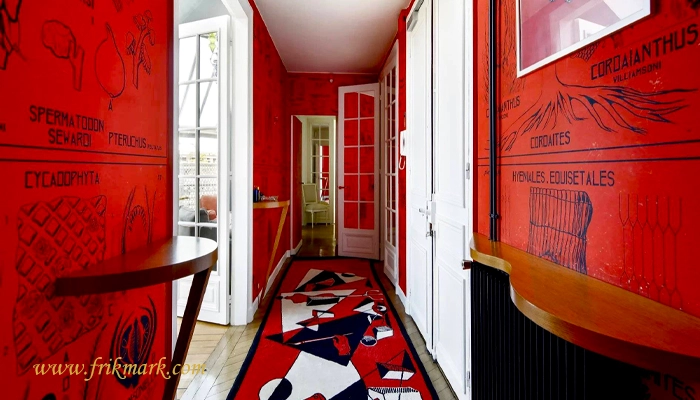
Bank interest rates in Brazil
The bank interest rate, which is set by the Brazilian Central Bank (Banco Central), is one of the most key instruments of the country’s monetary policy and has a direct and immediate impact on the real estate market. When interest rates increase, mortgages become more expensive and the nature of the installments changes in such a way that a wide range of applicants lose their financial ability to buy a house. This leads to a decrease in demand and, as a result, a relative decrease in property prices in Brazil. Conversely, a decrease in interest rates can provide space for the entry of new investors and buyers, increase demand and, as a result, cause a gradual increase in property prices in Brazil . Therefore, interest rate fluctuations are among the most sensitive economic factors in directing the country’s real estate market.
Housing inflation rate in Brazil
Inflation is an important economic indicator that affects the housing market in various ways. When the inflation rate increases, the cost of raw materials, labor, transportation, taxes, and construction-related services also increase. This increase in costs naturally leads to an increase in the cost of real estate in Brazil, as builders adjust the selling price of properties in line with the increase in costs in order to maintain their profit margins. On the other hand, in inflationary economies, real estate is often seen as a safe haven for capital, because unlike cash, which loses its value to inflation, physical assets such as real estate tend to maintain or even increase in value. This mentality increases demand and further increases the cost of real estate in Brazil. As a result, inflation affects the market both from a production cost perspective and from a psychological and behavioral perspective.
Economic growth and per capita income
The overall state of a country’s economy plays a decisive role in the purchasing power of its people and the performance of the housing market. During periods of positive economic growth in Brazil and an increase in per capita income, families’ financial ability to purchase property has increased, and the real estate market has witnessed a significant increase in demand. This increase in demand, especially in urban areas and developing regions, has led to a significant increase in property prices in Brazil. Conversely, during periods of economic recession or a decline in GDP, families face a decrease in income and an increase in unemployment, and as a result, many of them postpone buying property or turn to renting. This situation leads to a decrease in the volume of real estate transactions and, in some cases, a decrease or stabilization of property prices in Brazil. Therefore, there is a close relationship between the state of the macroeconomic environment and the dynamics of the housing market.
Access to financial facilities and mortgages in Brazil
Access to finance, especially bank loans, is one of the most important drivers of demand in the Brazilian real estate market. In this country, state-owned banks such as Caixa Econômica Federal and Banco do Brasil play a major role in providing housing facilities. When the government eases lending conditions—such as lowering interest rates, extending repayment terms, or reducing the down payment requirement—a large portion of the population can purchase property. This increased demand usually leads to higher property prices in Brazil , especially in areas where supply is limited. Conversely, tightening lending or raising interest rates reduces purchasing power and results in a relative slowdown in real estate transactions. Therefore, financial and banking policies at the micro and macro levels can significantly affect property prices in Brazil and even push the market from recession to boom or vice versa.
Also read: The language of the people of Brazil
Social and demographic factors affecting property prices in Brazil
Social and demographic developments play a significant role in shaping housing market demand. In a vast country like Brazil, with its cultural, ethnic, and economic diversity, housing needs vary greatly across regions. Factors such as population growth, internal migration, changing family structures, and cultural developments can directly affect property prices in Brazil. Understanding these factors helps the government and the private sector align housing and urban development policies with the real needs of society.
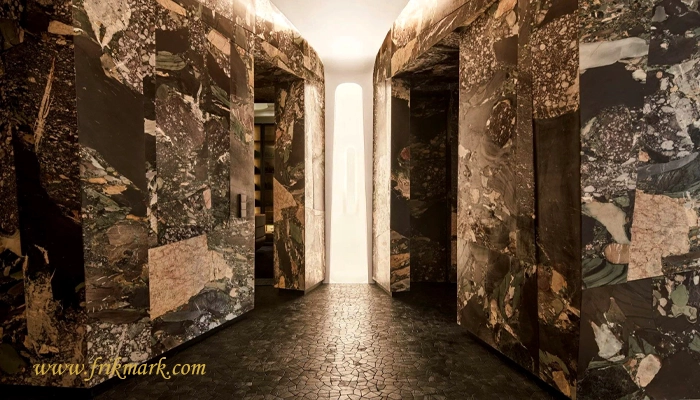
Internal migration and urbanization in Brazil.
One of the most important factors affecting the cost of property in Brazil is internal migration and the concentration of the population in large cities. Millions of people from rural areas and less developed states are migrating to metropolitan areas such as São Paulo, Rio de Janeiro and Brasília in search of job opportunities and better services. This concentration of population in specific areas leads to an increase in demand for housing in areas where urban infrastructure and public services are well developed. As a result, the pressure of demand in these areas causes a sharp increase in the cost of property in Brazil, especially in densely populated urban areas. In contrast, areas that are experiencing a decline in population usually see a stagnation in the real estate market.
Population growth and changing household structure in Brazilians
The increase in birth rates and the formation of new households, together with an increase in life expectancy, has led to a constant increase in demand for housing units. In addition, the trend of decreasing household size – that is, smaller families and an increase in the number of single people or single-person households – has led to changes in demand patterns in the housing market. These changes have led to an increase in demand for small and medium-priced apartments and, in some areas, have led to an increase in property prices in Brazil. In areas where horizontal development is limited, this new demand can lead to a vertical growth of construction and an increase in prices.
Changing lifestyles in Brazil and cultural preferences in Brazil
Cultural and lifestyle changes in Brazil, especially among younger generations, are playing a significant role in the type of housing demand. Today, more people are looking for homes with modern amenities, green spaces, high security, and good access to urban services. These trends have led to a greater demand for properties located in residential complexes or in areas with favorable urban infrastructure. This increase in demand is causing property prices in Brazil to grow significantly in certain areas, especially near technology centers, universities, or areas with a high standard of living. Conversely, areas that fail to adapt to these cultural changes may fall behind the market boom.
Political and legal factors affecting property prices in Brazil
Government policies, legal stability and administrative transparency are among the most important infrastructures of trust in the real estate market. In Brazil, these factors play a crucial role in shaping the expectations of buyers, investors and developers. In conditions where legal frameworks are clear, stable and predictable, the housing market will be more secure and investment in it will increase. On the other hand, political instability, incomplete reforms or complex and inconsistent laws can increase risk, reduce investment and cause severe fluctuations in property prices in Brazil.
Political stability and investor confidence
In developing countries like Brazil, political stability is one of the most important prerequisites for sustainable growth in the real estate market. Any political crisis, widespread corruption, or instability in local and national governments can cause uncertainty in economic decisions and the halting of construction projects. This uncertainty has led to a decrease in investor interest and, in many cases, to a drop or fluctuation in property prices in Brazil. Conversely, periods when governments have been able to gain public trust and implement coherent and effective policies have usually been accompanied by a boom in the market and price growth.
Government support policies in the field of housing
In recent years, Brazil has implemented various programs to develop social housing and increase people’s access to housing, such as the famous Minha Casa, Minha Vida program , which aimed to support low-income groups. Such policies, by providing subsidies, reducing interest rates, and facilitating loan conditions, have increased demand for property, especially in peripheral areas and developing cities. The increased demand in these areas has gradually caused the cost of property in Brazil to grow. Policies such as tax breaks for developers or investors have also been effective in attracting capital to the housing market. However, the lack of continuity or incomplete implementation of these policies can have the opposite effect and destabilize prices.
Legal system and land ownership in Brazil
Land and property ownership laws in Brazil are complex and sometimes fraught with bureaucratic challenges. Problems such as the lack of official documents, land ownership conflicts, and a weak property registry system have prevented parts of the market from fully entering the formal transaction cycle. These problems are especially prevalent in rural or marginal areas. The lack of legal security for buyers and investors increases risk and, as a result, reduces the willingness to buy. These factors have contributed to the stagnation and even decline of property prices in Brazil in many regions. On the other hand, any legal reform that can increase legal security can increase investment and lead to price stability or growth.
Also read: Where is the capital of Brazil?
Environmental and geographical factors affecting property prices in Brazil
Geographical features, weather conditions, location, and natural hazards are among the factors that greatly influence the value of real estate. In a country as vast as Brazil, differences in climate, topography, and distance from economic centers have led to significant differences in property prices in Brazil. In this section, we examine how environment and geography affect the country’s real estate market.
Location and access to municipal services in Brazil
Proximity to urban centers, commercial areas, public transportation stations and public services such as schools, hospitals and shopping malls is one of the most important factors in increasing property prices in Brazil. Properties located in central areas of large cities such as São Paulo, Rio de Janeiro or Curitiba are usually in higher demand due to easier access and better amenities. This increases the value of land and buildings in these areas. Conversely, in remote or underserved areas where access to services is limited, prices are usually lower, as demand is also lower.
Natural and tourist attractions of Brazil
With its beautiful beaches, rainforests, and numerous natural attractions, Brazil is one of the countries where investing in tourist real estate is of great importance. Cities such as Florianopolis, Natal, Salvador, and the surrounding Amazon region have seen a significant increase in the cost of property in Brazil due to their natural beauty and high tourist traffic. The presence of domestic and foreign tourists has increased the demand for villas, beach apartments, and temporary accommodations. This increased demand, especially in coastal areas, has led to an expansion of construction and a significant increase in the cost of property in Brazil.
Environmental hazards and natural disasters in Brazil
The presence of hazards such as floods, landslides, tropical storms or natural fires can also have a significant impact on property prices in Brazil. Areas that are constantly exposed to such threats tend to experience a decline in investor and buyer interest, which can keep prices low. For example, in areas of northeastern Brazil, where heavy rainfall and inadequate infrastructure cause flooding, we have seen property prices stagnate or decline. On the other hand, environmentally safer areas, especially those covered by urban regeneration programs, are more attractive for purchase and investment.
Climate and environmental quality in Brazil
Pleasant climate conditions, clean air and high environmental quality are factors that increase the desire of people to live in certain areas. Areas with a temperate climate, away from industrial pollution and with high green cover tend to face higher demand, which leads to an increase in property prices in Brazil in these areas. On the other hand, areas with unfavorable or polluted climates may face a decrease in demand and a market stagnation, despite their favorable location. Therefore, environmental issues have now become one of the main criteria for buyers and developers.
Also read: Customs clearance in Brazil
Frequently asked questions about property prices in Brazil
1. Which areas in Brazil have the highest property price increases?
Large urban areas and coastal areas with recreational and tourist facilities tend to experience the highest property price increases in Brazil. Also, areas with up-to-date transportation infrastructure and municipal services tend to have higher property prices in Brazil than other areas.
2. Do currency fluctuations affect the cost of property in Brazil?
Yes, exchange rate fluctuations, especially against the US dollar, can affect the cost of property in Brazil. When the real depreciates, it becomes cheaper for foreign investors to buy property, which may lead to an increase in property prices in Brazil.
3. How can political conditions affect property prices in Brazil?
Political instability, sudden changes in laws and economic policies can increase investment risk and consequently make property prices in Brazil unstable. Political stability is usually a key factor in maintaining or growing the cost of property in Brazil.
4. What is the role of taxes and ancillary costs in property tariffs in Brazil?
Property taxes, title deed fees, and local levies can make up a significant portion of the cost of property in Brazil and affect the final price. These costs vary by region and should be considered when purchasing property.
5. Are there any restrictions on investing in Brazilian real estate for foreigners?
In most cases, foreigners can purchase property in Brazil without restrictions, but in some sensitive or border areas there may be special laws that affect the cost of property in Brazil. It is essential for foreign investors to be aware of these regulations.
Conclusion
The real estate market in Brazil is strongly influenced by a combination of economic, social, political, geographical and environmental factors. Property prices in Brazil are not only a reflection of the country’s economic situation, but also of demographic trends, government policies and climate change. On the one hand, factors such as interest rates, inflation and economic growth directly affect the purchasing power of households and the volume of investment in housing; on the other hand, social trends such as migration to cities and changes in household structure have increased demand in certain areas and have led to significant differences in property prices in Brazil.
In addition, government policies that are supportive or restrictive in the housing sector have played a decisive role in increasing or decreasing the cost of property in Brazil. In areas with transparent legal and ownership infrastructure, the property market is more stable and prosperous. Also, the influence of geographical location and environmental conditions should not be overlooked, as areas with favorable climate, greater security and natural attractions have typically witnessed continuous growth in property prices in Brazil.
Ultimately, any accurate analysis of the country’s real estate market requires a comprehensive and interdisciplinary study. Investors, policymakers, and citizens should be aware that fluctuations in property prices in Brazil are not limited to a single variable, but are the result of a complex interaction of various factors that can have a different composition in each period of time. Therefore, foresight, data-drivenness, and smart policymaking will be key to creating a stable and balanced market in the Brazilian real estate sector.
